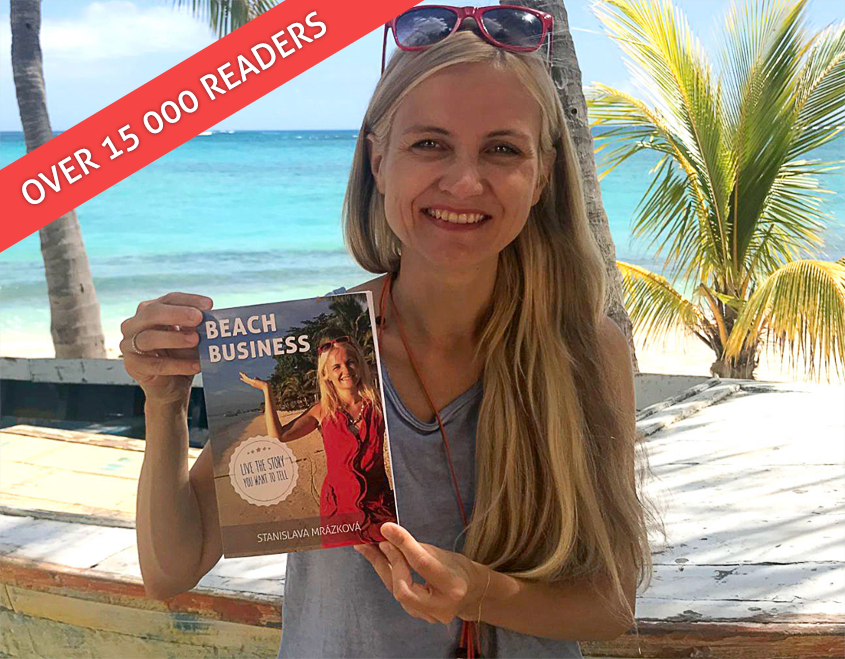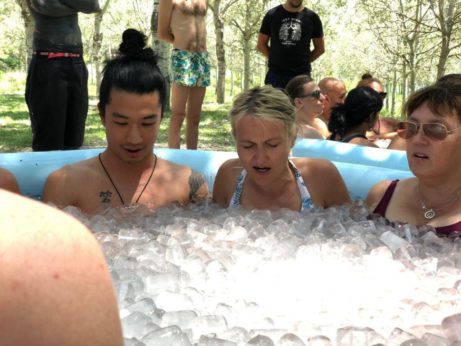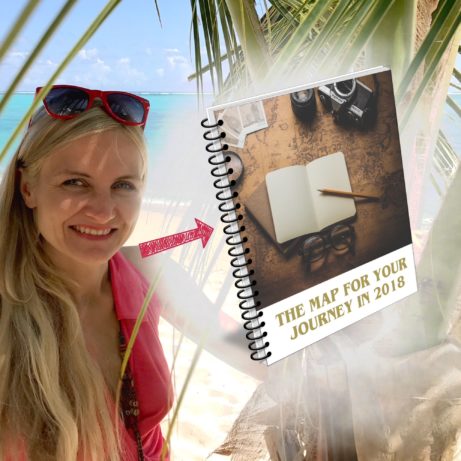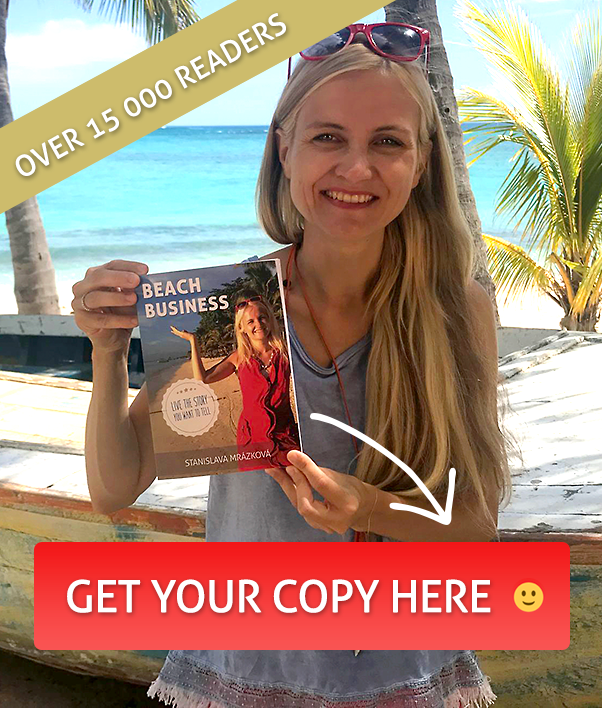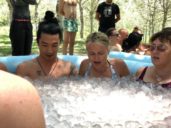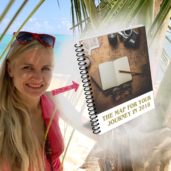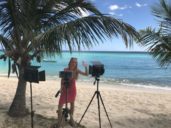An Interview With Jack Canfield About Fulfiled Dreams and Beach Business
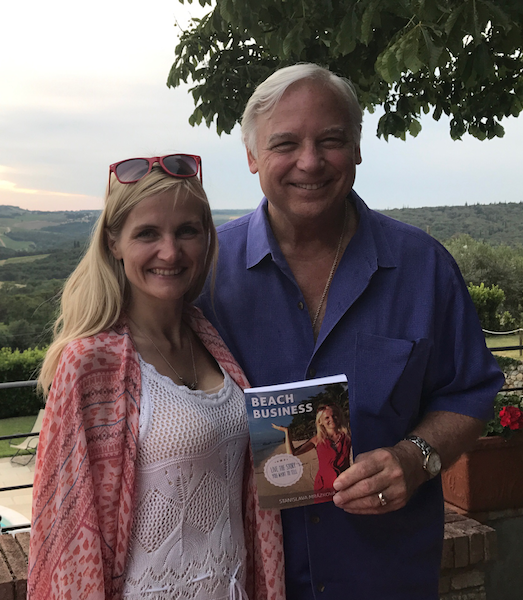
If you don’t ask, the answer will remain ‘NO’ forever! This was one of the fundamental things I’ve learnt when I was thirteen years old and read Jack Canfield’s book, The Alladin Factor.
To ask for anything, ask and risk the rejection, embarrassment, and I don’t know what else… Many times in my life it was so scary for me that I often gave myself ‘NO’ without even asking the question aloud.
But when the situation is ‘Now or never,’ and another opportunity may never arise, you can’t afford NOT to take a risk. You can’t afford to reject yourself.
So I took a deep breath and before the fear took over I asked the question,
“Jack, I have this idea, would you record a ten-minute video interview with me for my clients and fans?” Jack smiled and said: “Hmm, maybe….” Maybe didn’t mean ‘No,’ so I continued. “Ok, and what about today after lunch, 10 minutes…. Everything will be ready, you just come in, and we’ll do it, what about that?”
…. and Jack replied, ‘YES’ :-)
When you have ten minutes and a once-in-a-lifetime opportunity, it’s an adrenaline race
Ten minutes to get the introduction ready, prepare questions, to be OK with my English imperfection, which thousands of people will hear, set up the place, light, ask few people to help with holding the light and the prompter, and face the pressure of Jack’s assistant who says,
“Ten minutes all-in-all is max. You won’t have the second chance. Jack has a consultation right after the recording, and then the program starts in the following fifteen minutes… If you can’t be ready, you are out of luck, and we have to cancel.”
OK. So I don’t have a second try. And an imperfect SOMETHING is better than a perfect NOTHING.
So here it is :).
Watch Video With Jack Canfield About Fulfilled Dreams and Beach Business:
Do you prefer reading? Read the interview transcription below:
Jack, I want to ask you if you could name three things that are stopping people from fulfilling their dreams.
Well, I think that one thing is people don’t admit that they have dreams, they have never really sat down and turned their dreams into specific goals that are measurable in time and space: how much, by when.
And the second thing that stops people from achieving their goals is what we call limited believes that they have often unconscious that may come from their childhood.
And the third thing is fear. People are afraid to be rejected, afraid of looking foolish, afraid of losing money, etc. So you have to be very clearly specific about what you want, you need to be able to tell other people about it without feeling ashamed or embarrassed, you need to create a plan, you need to believe it is possible, and you need to take action in the face of fear.
So my second question is what do you think about beach business, about creating on-line products, about putting your know-how online and selling it?
Well, I think in today’s world, it is critical, if you want to get information on, and through all, many young people don’t read books anymore, people want to get information when they want it, so if it’s online, they can download it or they can access the website or whatever, at their own time, maybe seven o’clock at night, or seven in the morning.
I think that´s very important and it’s a passive in a business sense, so once it is there, it can create a business income over time. For me, we have created several online programs and we are creating a third one right now or we are turning almost all of our trainings into online trainings and it’s our biggest revenue source of all of our revenue sources.
And, just, for example, in train the trainer program, where we teach people how to teach the success principles, we now have over 2,000 people that have purchased the program, I think about 1,500 are certified now, and over 91 countries around the world. And there is no way without online that we would have reached 91 countries, so it gives us huge international reach.
People feel a lot of fear before they are doing the first step towards their dreams. Can you give an advice of what to do with this, with the fear?
Well, I think that fear is a kind of natural thing that shows up for people when they are doing anything new. It is true for me as well. And the first thing to realize is that we are creating our own fear by imaging something bad happening that has not happened yet.
So if you can replace that, consciously choose to replace the image of failure with the image of success, what would it look like if you had achieved it and then every day spend a few minutes visualizing that, it begins to crowd out the images creating the fear.
The second thing is, is to realize that most fears are overcome by simply doing the things you are afraid of and surviving. Self-confidence comes from, in my opinion, from surviving a risk.
And the third thing I would recommend is having an accountability partner, a coach, or a support person that can hold your hand and talk you through it, hold you accountable. Like you said you were to do it on Thursday, did you do it on Thursday? It gets embarrassing to keep saying I didn’t do it. So, I think that’s really helpful as well.
And the fourth thing I would say is to realize, ask yourself, what’s the benefit of doing this, what’s the cost of not doing it, you know. Like when I did my first book, I was afraid that people would judge it, that it might not be seen as intelligent or whatever.
But the benefit was that I would help hundreds of thousands of teachers teach better, the costs of not doing it was not being well known in my field, not having an impact, not having the income, so when you compare those, in a while, the costs are not that important, the benefit is more important.
Thank you
At the end, I would like to add, that I am preparing a new article full of inspirational insights, that I had during those five days spent with Jack and his team, where I will also reveal my new plans and horizons that have opened :)


